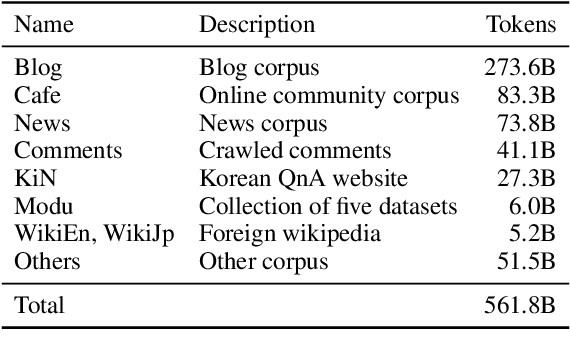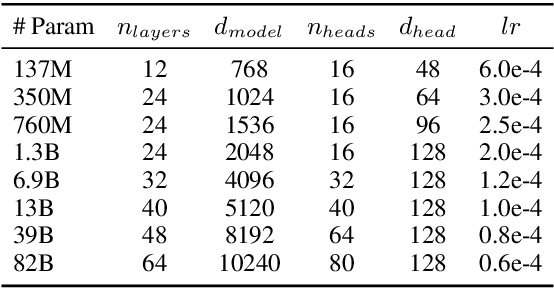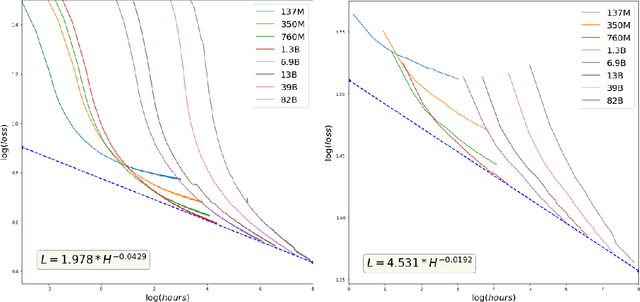Dongju Park
HyperCLOVA X Technical Report
Apr 13, 2024Abstract:We introduce HyperCLOVA X, a family of large language models (LLMs) tailored to the Korean language and culture, along with competitive capabilities in English, math, and coding. HyperCLOVA X was trained on a balanced mix of Korean, English, and code data, followed by instruction-tuning with high-quality human-annotated datasets while abiding by strict safety guidelines reflecting our commitment to responsible AI. The model is evaluated across various benchmarks, including comprehensive reasoning, knowledge, commonsense, factuality, coding, math, chatting, instruction-following, and harmlessness, in both Korean and English. HyperCLOVA X exhibits strong reasoning capabilities in Korean backed by a deep understanding of the language and cultural nuances. Further analysis of the inherent bilingual nature and its extension to multilingualism highlights the model's cross-lingual proficiency and strong generalization ability to untargeted languages, including machine translation between several language pairs and cross-lingual inference tasks. We believe that HyperCLOVA X can provide helpful guidance for regions or countries in developing their sovereign LLMs.
What Changes Can Large-scale Language Models Bring? Intensive Study on HyperCLOVA: Billions-scale Korean Generative Pretrained Transformers
Sep 10, 2021



Abstract:GPT-3 shows remarkable in-context learning ability of large-scale language models (LMs) trained on hundreds of billion scale data. Here we address some remaining issues less reported by the GPT-3 paper, such as a non-English LM, the performances of different sized models, and the effect of recently introduced prompt optimization on in-context learning. To achieve this, we introduce HyperCLOVA, a Korean variant of 82B GPT-3 trained on a Korean-centric corpus of 560B tokens. Enhanced by our Korean-specific tokenization, HyperCLOVA with our training configuration shows state-of-the-art in-context zero-shot and few-shot learning performances on various downstream tasks in Korean. Also, we show the performance benefits of prompt-based learning and demonstrate how it can be integrated into the prompt engineering pipeline. Then we discuss the possibility of materializing the No Code AI paradigm by providing AI prototyping capabilities to non-experts of ML by introducing HyperCLOVA studio, an interactive prompt engineering interface. Lastly, we demonstrate the potential of our methods with three successful in-house applications.
GPT3Mix: Leveraging Large-scale Language Models for Text Augmentation
Apr 18, 2021



Abstract:Large-scale language models such as GPT-3 are excellent few-shot learners, allowing them to be controlled via natural text prompts. Recent studies report that prompt-based direct classification eliminates the need for fine-tuning but lacks data and inference scalability. This paper proposes a novel data augmentation technique that leverages large-scale language models to generate realistic text samples from a mixture of real samples. We also propose utilizing soft-labels predicted by the language models, effectively distilling knowledge from the large-scale language models and creating textual perturbations simultaneously. We perform data augmentation experiments on diverse classification tasks and show that our method hugely outperforms existing text augmentation methods. Ablation studies and a qualitative analysis provide more insights into our approach.
 Add to Chrome
Add to Chrome Add to Firefox
Add to Firefox Add to Edge
Add to Edge